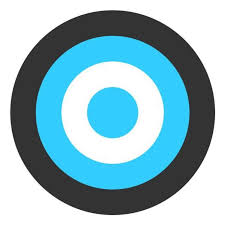Is failing to plan, planning to fail
I'll ask a few questions to kick off this blog in relation to your 'A Race'. Think of this as your key race for the season and where you want to perform at your best. Have you considered these questions?
1. What are the course demands for swim, bike and run, plus transitions?
This is a broad questions and I expect lengthy responses when I set an athlete this homework. A few examples of what I am generally looking for:
- Is the swim sheltered or choppy? Water cold or warm? How many laps and turns? Will the start be fast?
- Is T1 long or short? Soft sand or dirt? Will it require porpoising?
- Is the bike laps, or out and back? Hills and gradients, surfaces and turnarounds?
- Is the run flat or hilly? Surfaces soft or hard road?
2. What are the physiological demands?
- Does your swim speed need to be improved for the race start? Or do you need to swim well without a wetsuit?
- Are you required to ride above threshold at times during hill climbs or is the ride flat and power outputs steady? Is the course technical where you may require top end power for numerous turnarounds?
- Like the bike, does the course require you to run at or above threshold for hill climbs? Are there lots of turnarounds that require accelerations?
3. What are the environmental challenges?
This can be a hard one specially in a place like Melbourne where the weather is very unpredictable. Will it be windy, hot, cold or humid? You need to understand what you may face race day
4. Who are your competitors and how can we overcome them?
If your racing at the pointy end then I am sure you know your main rivals? How can you overcome them?
5. Strengths and weaknesses?
This one can really flow on from the previous question. Is it realistic that you can improve your weaknesses? Or, do you need to focus on ensuring your strengths play into your hands on race day?
From the above we can gather loads of information which is all good and well, however, what do we do with this information and how do we interpret it? This is where some smart planning comes into play with your programming. If you want to perform at your best, then you must train specific (or close to) to the course demands.
Putting this into context I'll share a particular learning curve I personally experienced in Noosa 2013. In this particular race my swim and Garmin Hill cost me a potential Open age podium. 2 weeks prior I had my best performance to date with a win at Yarrawonga Olympic Distance and I were in peak shape, however, didn't train smart enough for the Noosa course demands:
1.
The swim I lost the front group and trailed out of the water by 20 seconds. I underestimated the jump from age group to the open age category, and my training preparations for a fast start and settling into a good rhythm weren't good enough. It was the first 400m where I lost this 20secs and then swam alone and just off the back for the remaining 1100m.
2.
Riding up Garmin hill I rode above threshold and finally caught the front group, only to be dropped at the top on the flats. I simply hadn't trained for this kind of race where I would go up and above for 5mins and then settle back into my rhythm. I payed the price at the top of the hill and certainly didn't end up riding a time I were capable of.
So, are you trying smart for your course? Do your sets imitate race conditions and what to expect on race day?
All i4 performance programs are designed around the above principals. You can email us at
contact@i4coaching.com.au for more info or ask a question.
Ryan Bourke
